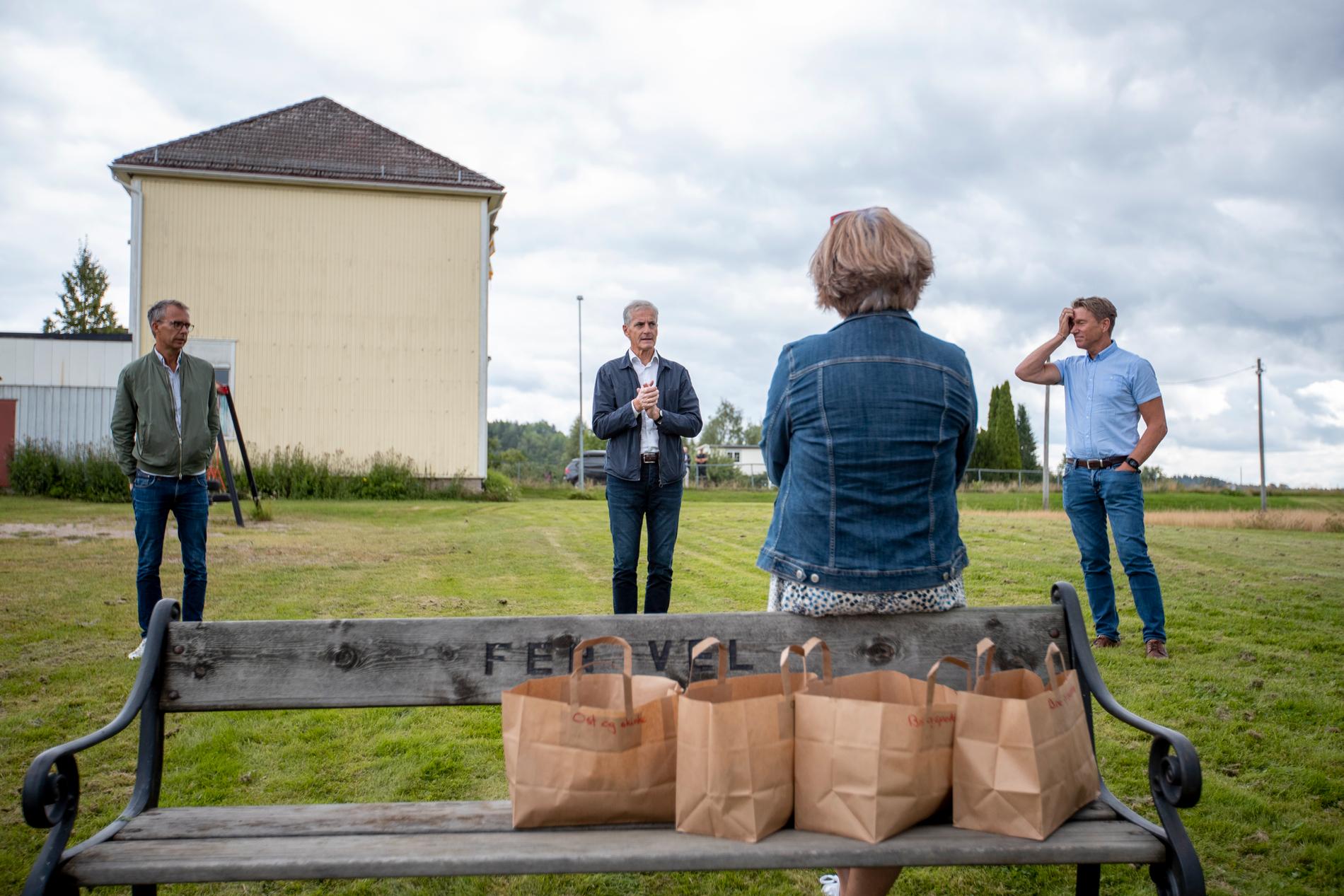The EU hunts ever harder for critical raw materials, such as minerals and aluminium. Now Norway has been invited into a separate club for this.
The Fens field in Telemark is probably Europe’s only deposit of rare earth metals. The hunger for such critical raw materials is growing strongly in the EU – which now wants Norway even more on board. Photo: Javad Parsa / NTBPublished: Published:
Less than 20 minutes ago
Copy linkCopy linkShare on FacebookShare on FacebookShare by emailShare by email
– I have given a verbal invitation to the Ministry of Foreign Affairs and the Ministry of Trade, says the EU’s ambassador to Norway, Nicholas De la Grandeville to NTB.
– Norway has a political vision around this. And then, of course, Norway is an important producer of critical raw materials, says the ambassador.
The EU currently consumes around 25 percent of the world’s raw materials, such as copper, nickel, magnesium and aluminium. But only 3-4 percent is produced in the Union, De la Grandeville told a seminar at Arendalsuka on Monday.
By 2050, the demand for critical raw materials will be tens of times greater than it is today, according to the ambassador.
From oil age to mineral age
At the same time, the EU wants to free itself from China, which today controls a large part of the world’s critical raw materials – which are used in the production of everything from smartphones to electric cars and offshore wind turbines. Today, the EU gets 98 percent of its rare earth metals and 93 percent of its magnesium supply from China.
According to Georg Riekeles from the European Policy Centre, Norway has emerged as the EU’s most important resource when it comes to minerals.
For example, Hydro accounts for around 40 per cent of all aluminum produced in Europe, while Elkem accounts for between 20 and 30 per cent of the EU’s imports of silicon.
– Everything is in place for a partnership. We are on our way from the oil age to the mineral age, he says.
Read on E24+
Thomas Nielsen: – Steer clear of such companies
New EU regulation
Earlier this year, the European Commission presented a proposal for a new regulation on critical raw materials – the Critical Raw Materials Act (CRMA). It will hopefully be dealt with in the Council of Ministers and the EU Parliament this autumn.
Among other things, the regulation advocates a fast track for the approval of new mineral projects.
But both Norway and several EU countries are skeptical about this.
– All European countries find this difficult. We need these minerals for the green shift, but it has several downsides, for example environmental consequences and social resistance, says Riekeles to NTB.
After the CRMA has been finalized and adopted in the EU, it must be assessed whether the regulation is EEA-relevant. If so, Norway must comply with the new regulations.
Read on E24+
Morten (28) invests in property: – Can earn millions with one application
Touchstones
In June, Industry Minister Jan Christian Vestre (Ap) presented the government’s mineral strategy. Among other things, the government steps in to establish a fast track for the processing of license applications for mining for minerals.
Norway has several old mines that have been closed, but which it may now be profitable to start up again. More applications may come as early as autumn.
– This is going to be a touchstone, commented Aps Sverre Myrli, who sits on the business committee at the Storting, from the stage at Arendalsuka.
In addition, several organizations have advocated mining on the Fensfield in Telemark, which is Europe’s only deposit of rare earth metals. But resources have not yet been set aside to survey the field.
– Five years ago, we did not discuss this at all. We haven’t seen the seriousness. But now we have to pick up the pace, says Myrli.
2023-08-15 03:49:28
#Norway #join #club #critical #raw #materials
